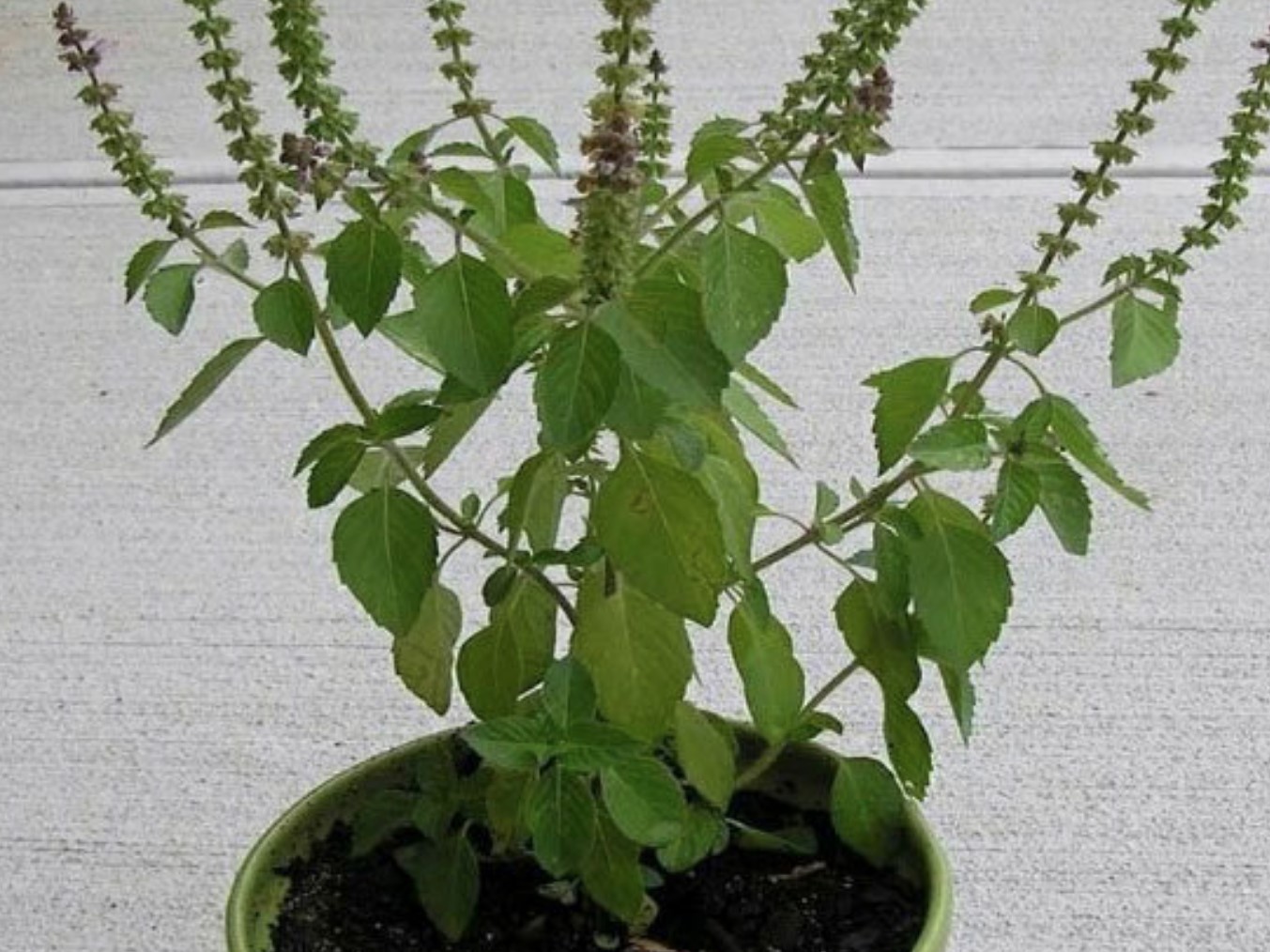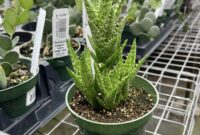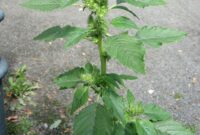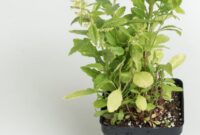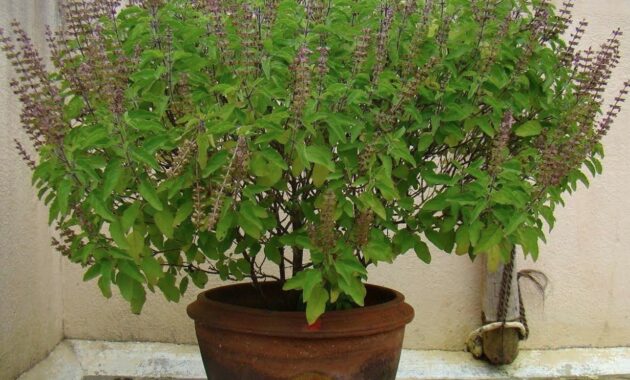
What is Ocimum Gratissimum?
Ocimum gratissimum, often called clove basil or African basil, is an aromatic herb with a strong clove-like scent. It’s a member of the mint family and is native to tropical Africa and Asia. This versatile plant has been used for centuries in traditional medicine, culinary practices, and religious ceremonies.
Plant Care and Cultivation
Growing Conditions:
- Sunlight: Ocimum gratissimum thrives in full sunlight.
- Soil: Well-draining, fertile soil is ideal.
- Temperature: Prefers warm temperatures.
Propagation:
- Seed: Sow seeds directly into the soil or start them indoors in seed trays.
- Cuttings: Take stem cuttings and root them in water or soil.
Care Tips:
- Watering: Water regularly, especially during dry periods.
- Fertilizing: Apply a balanced liquid fertilizer every 2-3 weeks.
- Pruning: Prune regularly to encourage bushy growth and prevent legginess.
Medicinal Properties and Uses
Ocimum gratissimum has a wide range of medicinal properties, including:
- Antimicrobial: Effective against bacteria and fungi.
- Antioxidant: Protects cells from damage caused by free radicals.
- Anti-inflammatory: Reduces inflammation.
- Analgesic: Relieves pain.
- Sedative: Promotes relaxation and sleep.
Common Uses:
- Respiratory Health: Treats coughs, colds, and bronchitis.
- Digestive Health: Alleviates indigestion, bloating, and stomach ulcers.
- Skin Health: Soothes skin irritations, acne, and insect bites.
- Oral Health: Freshens breath and reduces gum inflammation.
- Stress Relief: Reduces anxiety and promotes relaxation.
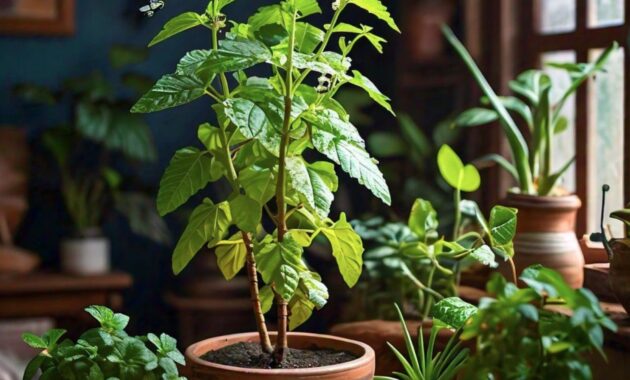
Ocimum Gratissimum Essential Oil
The essential oil extracted from Ocimum gratissimum is highly concentrated and potent. It’s used in aromatherapy, skincare, and other applications.
Benefits of Ocimum Gratissimum Essential Oil:
- Stress Relief: Calms the mind and reduces anxiety.
- Pain Relief: Soothes muscle and joint pain.
- Skincare: Improves skin health and reduces acne.
- Insect Repellent: Keeps bugs away.
Note: Always dilute Ocimum gratissimum essential oil before applying it to the skin.
Culinary Uses
Ocimum gratissimum leaves can be used fresh or dried in various culinary applications. Its strong, clove-like flavor adds a unique twist to dishes.
Common Uses:
- Flavoring: Used in curries, stews, and sauces.
- Tea: Made into a soothing and flavorful herbal tea.
- Infusion: Added to water or other beverages for a refreshing drink.
Ayurvedic Perspective
In Ayurveda, Ocimum gratissimum is considered a potent herb with numerous health benefits. It’s used to balance Vata and Kapha doshas.
Harvesting and Storage
- Harvesting: Harvest leaves when the plant is in full bloom.
- Drying: Dry leaves in a warm, dry place, away from direct sunlight.
- Storage: Store dried leaves in an airtight container in a cool, dark place.
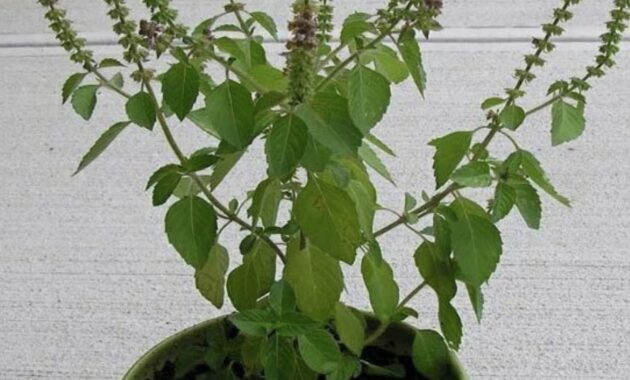
Pests and Plant Diseases
Ocimum gratissimum is generally pest and disease-resistant. However, it can be affected by:
- Pests: Aphids, whiteflies, and spider mites.
- Diseases: Fungal diseases like powdery mildew and root rot.
To prevent pests and diseases, practice good hygiene, avoid overcrowding, and use organic pest control methods.
Conclusion
Ocimum gratissimum is a versatile herb with a wide range of benefits. Whether you’re using it for its medicinal properties, culinary applications, or simply to enjoy its beautiful fragrance, this herb is sure to impress.
Remember to consult with a healthcare professional before using Ocimum gratissimum or its essential oil, especially if you have any underlying health conditions or are pregnant or breastfeeding.
FAQs
- Can I use Ocimum gratissimum for pets?
While Ocimum gratissimum is generally safe for humans, it’s best to consult with a veterinarian before using it on pets. - Are there any side effects to using Ocimum gratissimum?
While generally safe, excessive consumption or topical application of Ocimum gratissimum may cause skin irritation in some individuals. - How does Ocimum gratissimum compare to other herbs like basil?
Ocimum gratissimum has a stronger, more pungent flavor than sweet basil. It’s often used in savory dishes, while sweet basil is more commonly used in salads and pasta dishes. - Can I grow Ocimum gratissimum indoors?
Yes, Ocimum gratissimum can be grown indoors in a pot. Place it near a sunny window and water it regularly. - What are some other names for Ocimum gratissimum?
Ocimum gratissimum is also known as clove basil, African basil, and scent leaf.
